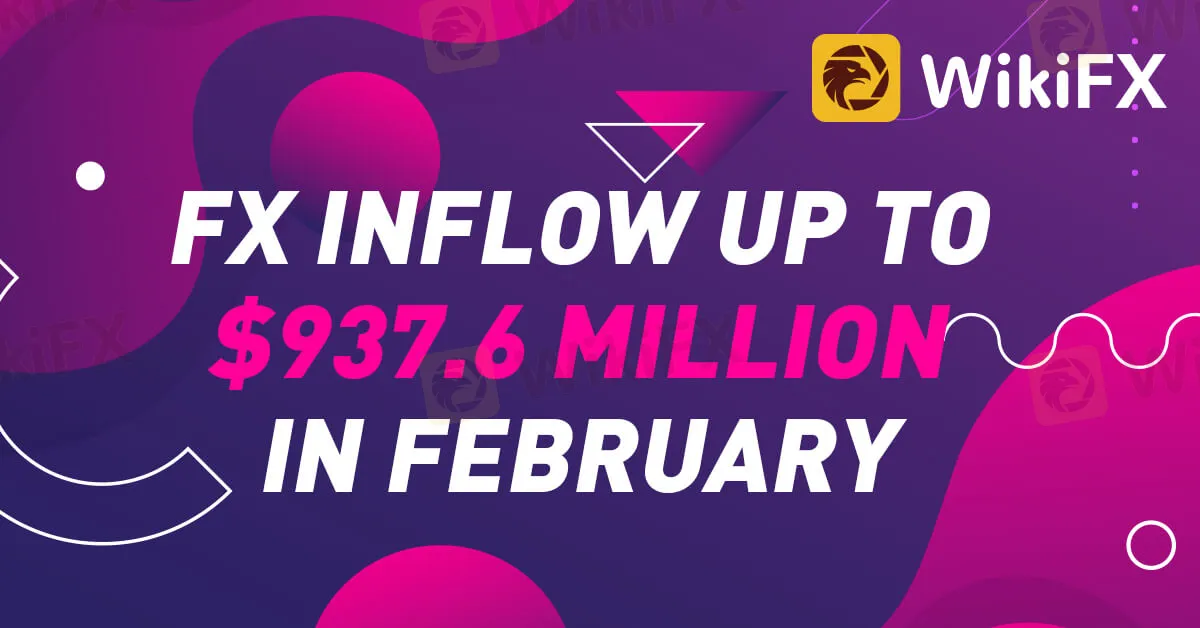简体中文
繁體中文
English
Pусский
日本語
ภาษาไทย
Tiếng Việt
Bahasa Indonesia
Español
हिन्दी
Filippiiniläinen
Français
Deutsch
Português
Türkçe
한국어
العربية
FX INFLOW UP TO $937.6 MILLION IN FEBRUARY
Abstract:The amount of foreign money that entered the Nigeria Autonomous Foreign Exchange market (NAFEX) increased by 10.7% to $937.6 million, despite a 1.14 percent decline in the 30-day moving average of Nigeria's external reserves.

The amount of foreign money that entered the Nigeria Autonomous Foreign Exchange market (NAFEX) increased by 10.7% to $937.6 million, despite a 1.14 percent decline in the 30-day moving average of Nigeria's external reserves.
The 30-days moving average of the external reserves decreased by $421.14 million to $36.648 billion as of March 2, 2023, from $37.069 billion on January 2, 2023.
Data collected in contrast to the $847.20 million reported in January of this year, the total dollar inflows into the NAFEX, also known as the Investors & Exporters Window (IEW), climbed by 10.7% month over month in February.
Higher inflows from both domestic and international sources were the cause of the rise. Domestic sources, which made up 87.1% of all inflows, increased by 11.4% to $816.9 million, while international sources, which made up 12.9% of inflows, increased by 5.9% to $120.7 million.
Analysts at Cordros Research noted that foreign inflows remain significantly below pre-pandemic levels of $1.56 million monthly average reported in 2019. This is because of constraints on forex liquidity, an overvalued currency, and a bad macro story. As domestic investors purchased more equities than they sold for the first time in seven months, foreign participation in the stock market remained low. Foreign investors net sold Nigerian stocks due to ongoing limitations on foreign exchange liquidity, upcoming election uncertainties, and increasing global interest rates.
The experts predict that the short- to medium-term currency liquidity situation will continue unstable in initiatives that would promote dollar inflows into the economy. The continuing global uncertainty and higher global interest rates, which restrict foreign inflows to the economy, contributing causes to the bad currency liquidity conditions. International investors take convincing measures in order to clarify in the future FX regime.
We predict that forex liquidity problems will persist for the foreseeable future because there are no increase in pre-pandemic levels. The medium- to long-term preservation of currency liquidity levels will also depend on FPIs, who have historically maintained supply levels in the IEW, given the slow building of result of output and high PMS under-recovery costs.
The supply and demand dynamics from the previous week were still putting pressure on the foreign exchange market. The naira increased by 4 Naira, or 0.53 percent, week over week to end at N758 to the dollar from N762 the prior week, while it barely fell by 0.13 percent, ending at N461.75 to the dollar from N461.17 to the dollar.
The final spot exchange rate for the 1-Month, 2-Month, 3-Month, 6-Month, and 12-Month tenor contracts on the Interbank Foreign Currency Future Contracts market was N462 to $1. This resulted in contract offer prices of N467.20, N476.27, N486.10, N512.13, and N543.35 being reached. the increased against the dollar by 3.76, 1.54, 1.14, 2.59, and 5.00 percent, respectively, week over week.
With the local currency market's the Supreme Court's recent decision on Friday making the old banknotes legal tender until December 31, 2023, analysts at Cowry Assets Management predict that the pressure on the naira's demand will continue unabated. To monitor currency in circulation and the money supply, the apex has decided to gradually remove the old banknotes from the system, thus it is quite doubtful that it will comment on the court's ruling.

Disclaimer:
The views in this article only represent the author's personal views, and do not constitute investment advice on this platform. This platform does not guarantee the accuracy, completeness and timeliness of the information in the article, and will not be liable for any loss caused by the use of or reliance on the information in the article.
Read more

FCA Identifies Clone Firm Exploiting Admiral Markets' Credibility
The UK Financial Conduct Authority (FCA) has issued a public warning regarding a fraudulent entity impersonating Admiral Markets, a legitimate and authorised trading firm. The clone firm, operating under the name Admiral EU Brokers and the domain Admiraleubrokerz.com, has been falsely presenting itself as an FCA-authorised business.

Malaysian Man Loses RM113,000 in Foreign Currency Investment Scam
A 57-year-old Malaysian man recently fell victim to a fraudulent foreign currency investment scheme, losing RM113,000 in the process. The case was reported to the Commercial Crime Investigation Division in Batu Pahat, which is now investigating the incident.

FCA Alerts Traders to New List of Unregulated and Clone Brokers
Protect your investments! Learn about unregulated firms flagged by the FCA and discover how WikiFX helps traders avoid scams and choose legitimate brokers.

The Funded Trader: Reactivates Accounts with Revised Payout Structure
Proprietary trading firm The Funded Trader has detailed its financial recovery efforts following a turbulent period marked by an unsustainable payout model. Addressing these challenges publicly, the firm outlined the steps being taken to resolve outstanding obligations and ensure operational sustainability.
WikiFX Broker
Latest News
Hackers Charged for $11M Crypto Theft Using SIM-Swaps
Role of Central Banks in the FX Market
FCA Alerts Against Sydney FX
What Makes Cross-Border Payments Easier Than Ever?
Trader Exposes Unethical Practices by STP Trading
Bitcoin Nears $100,000: A Triumph of Optimism or a Warning Sign?
Malaysian Man Loses RM113,000 in Foreign Currency Investment Scam
Mastercard Partners with JPMorgan for B2B Cross-Border Payments
FCA Identifies Clone Firm Exploiting Admiral Markets' Credibility
Coinbase Under Scrutiny Amid Wrapped Bitcoin Delisting Controversy
Currency Calculator


